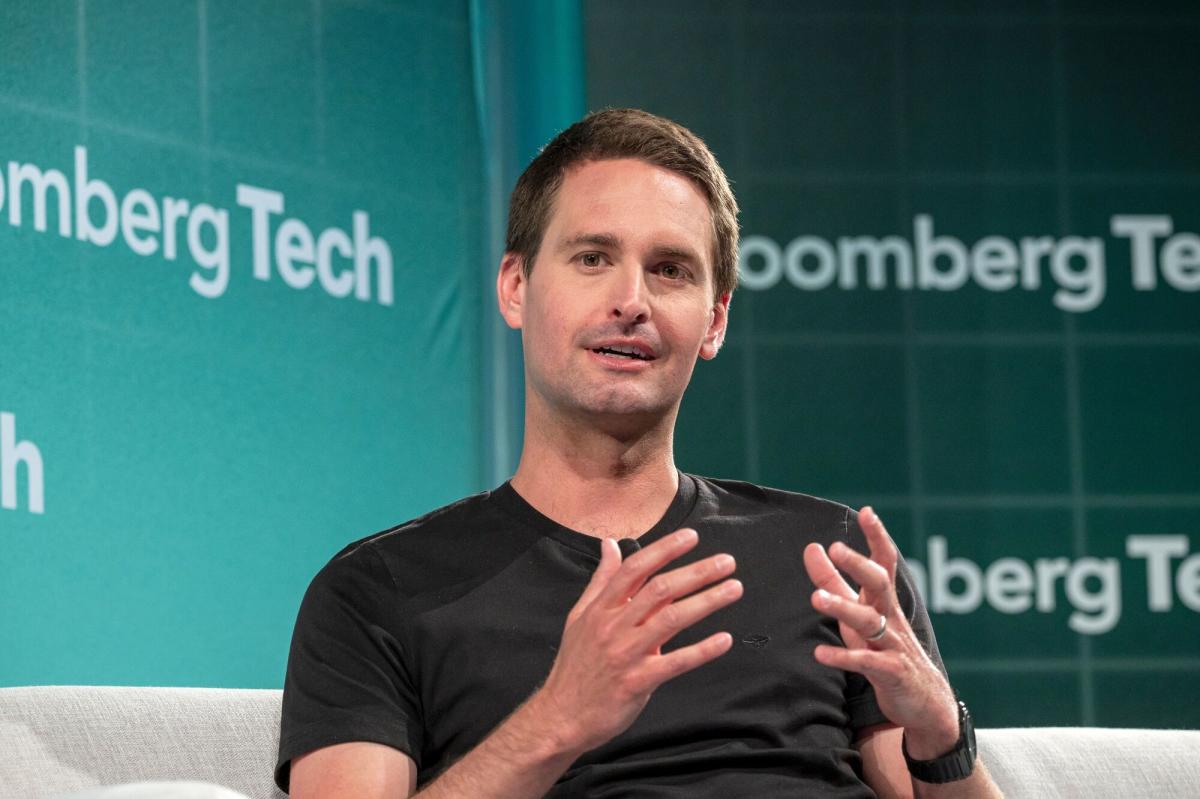(Bloomberg) — Snap Inc. Chief Executive Officer Evan Spiegel is trying to rally employees amid a 48% drop in the stock this year, telling them in an internal letter that the company is on pace for record annual revenue and will continue to press forward on augmented reality.
Most Read from Bloomberg
“You may be wondering why, with all of the progress we’ve made in our business over the last year, our share price performance has lagged the overall market,” Spiegel wrote Tuesday in the letter. “The answer is simple: our advertising business is growing slower than our competitors.”
Snap, which is known for its Snapchat disappearing photo app, competes with Meta Platforms Inc.’s Instagram and ByteDance Ltd.-owned TikTok, which are popular with young people and have larger advertising businesses. Meta’s shares have climbed 45% this year.
Snap has been overhauling its ad business to focus more on direct response ads that prompt users to take specific actions, such as downloading an app or purchasing a product. Traditionally, the company had focused more heavily on brand awareness campaigns, which are less costly to support, but also less lucrative. In the process of rebuilding its ad tech, the social media site’s sales fell for several quarters in 2023 before returning to growth late last year. Snap’s direct response revenue rose 16% in the second quarter, Spiegel told employees.
The CEO also said the company is experimenting with two new formats that will show ads in the chat inbox and on Snap’s map feature. It’s the first time Snap adds a way to monetize its popular maps feature, which lets users see friends’ locations in real time.
Snap is projected to generate $5.35 billion in revenue this year, a 16% jump from a year ago, according to data compiled by Bloomberg.
The company will also continue investing heavily in augmented reality technologies and smart glasses. Earlier this year, Snap began forecasting expenses related to infrastructure for the first time, which includes spending to support machine learning, augmented reality and artificial intelligence.
“Unlike in digital advertising, where we were a late entrant in a market with established, scaled players, we are a leader in the market for this new type of glasses and in the development of our augmented reality platform,” Spiegel wrote.
Snap first launched smart glasses in 2016. The video-recording sunglasses, called Spectacles, went viral for their colorful frames and for being sold through pop-up vending machines. But the company only sold around 220,000 glasses, and later took a $40 million write-off on the hardware. Snap is expected to release a new pair of AR smart glasses at its annual partner summit this month. Rival social media giant Meta also plans to release new glasses.
Most Read from Bloomberg Businessweek
©2024 Bloomberg L.P.

